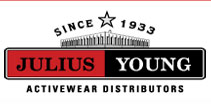FREQUENTLY ASKED QUESTIONS
Before you send questions, please take a look at some common questions people ask, along with correct answers. Click on the question from the list and it will take you to the right answer down the page.
1. What
means irregulars?
2. How
are irregulars classified?
3. What
are the different grades of irregulars?
4. What
is a closeout?
5. What
is an overrun?
6. What
determines the level of closeouts and irregulars
produced?
7. Why
would a company purchase irregulars and closeouts?
8. Do
I need to register before searching product lines?
9. What
is the policy regarding customer privacy?
10. What kind
of security can you ensure when I Register?
11. What are
the packing details?
12. What is
your export policy?
13. What about
delivery dates?
1. What
means irregulars?
Irregulars are flawed garments that are a normal result of the manufacturing
process.
2. How
are irregulars classified?
The visibility and degree of flaws usually classify irregulars.
3. What
are the different categories of irregulars?
Irregulars are classified into 5 major categories although each manufacturer
may only separate or grade for 2 or 3 categories. These categories from most
saleable too least saleable are as follows.
1. Irregulars are usually the highest grade of flawed garments.
Generally an irregular is a saleable garment without a major defect. These
defects can be but are not limited to fabric imperfections, size imperfections,
small stains, fabric puckering and pin holes.
2. Imperfects are irregulars that have not been culled or
graded for their imperfections and can have negligible flaws to major flaws.
Imperfects are the combination of irregulars and seconds.
3. Seconds are irregulars that have major flaws and imperfections
and usually require some form of repair work or embellishment to cover up
the flaw.
4. Thirds are severely damaged garments and should all have
flaws that are visible without major examination.
5. Pound goods or scraps are usually sold by the pound and
are used for rags or filler for other products.
Each manufacturer classifies an irregular differently. Therefore these definitions
are general. Irregulars may be graded or non-graded and this may be preformed
by the manufacturer (Mill Graded) or by the wholesaler. The level of mill
grading and the level of wholesaler grading are important criteria in the
determination of the price.
4. What is a closeout?
Closeouts are generally considered to be excess from a previous seasons production
and are the result of changes in color, design, and fabric or missed deliveries.
Closeouts by definition should all be first quality.
5. What is an overrun?
Overruns are over production from specific cuttings or orders and are generally
the result of the order not matching the amount of material needed. The amount
of cloth needed to produce 30 shirts may actually be enough to produce 45
shirts and therefore we have a 15 shirt overrun. Overruns by definition should
all be first quality.
6. What
determines the level of closeouts and irregulars produced?
The amount of closeouts and irregulars available is a direct correlation
to the supply and demand curves for a particular industry. The greater the
demand for a product results in higher levels of production and therefore
a greater number of irregulars produced. Lower demand reduces the number
of irregulars in the market but usually results in a higher level of closeouts.
7. Why
would a company purchase irregulars and closeouts?
The off price industry accounts for hundreds of millions of dollars a year
in retail sales. Discount retailers purchase these products, swappers (flea
market vendors), printers and embellishers and companies that repair garments.
Irregulars and closeouts are usually purchased at a substantial discount
to first quality in line production. These discounts can be from 20% to 80%
off first quality prices. These discounts are usually passed on to the consumer
and afford a merchant the opportunity to promote a product at a discount
to the market.
8. Do
I need to register before searching product lines?
Registration should be completed by the owner or a senior member of your
company. This person will act as the Administrator for your account. This
person will enable others from your company to purchase on our web site for
your companies behalf.
After you have successfully registered you will receive a confirmation by
E-mail and you will have access to search our product line.
You will be asked to provide your name and to identify a User name and Password.
We also will ask You to provide a Pass Phrase to be used in case you lose
your password or you have access problems.
9. What is the policy
regarding customer privacy?
Julius Young does not sell or share your company information. All information
submitted is strictly for the use of Julius Young.
10. What
kind of security can you ensure when I Register
Your information are handled by SSL to ensure web security.
11. What
are the packing details?
The packing details are for representative purposes only, we do not guarantee
you will receive the exact packing that is displayed. These packings are
intended to provide a general idea of the case configuration for this style.
12. What is your
export policy?
Export orders will require a follow up by one of our customer service representatives.
Company policies and or legal restrictions may preclude us from shipping
to many locations outside the continental United States.
13. What
about delivery dates?
You may specify a delivery date in the comment section which will be added
to your order when it has been approved.
Delivery dates over 30 days will not be accepted.
Please feel free to E-mail us your questions
at info@juliusyoung.com We will
be happy to assist you as best we can.

